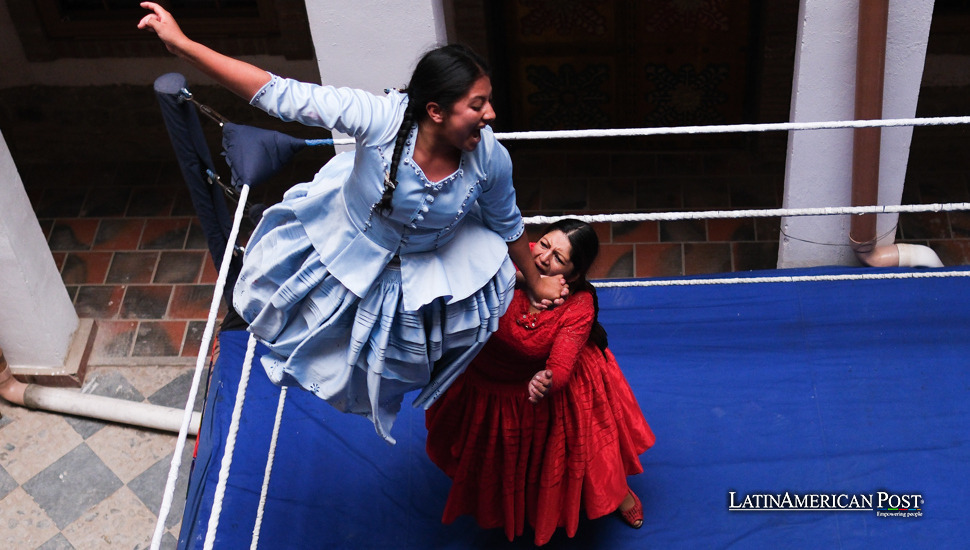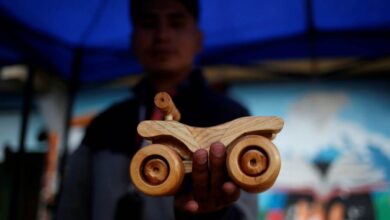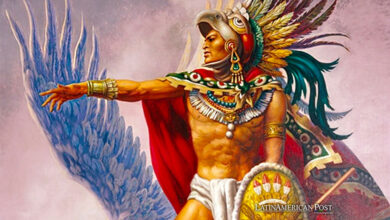Bolivian Culture Shines Through Wrestling Cholitas and Art

The fusion of art and tradition has found a vibrant home in La Paz, Bolivia. Renowned Aymara artist Roberto Mamani Mamani and a group of wrestling cholitas have turned a historic colonial mansion into a cultural hub. Together, they celebrate Bolivia’s rich heritage with colorful art, traditional wrestling performances, and a powerful message of empowerment.
A Historic Venue Meets Aymara Brilliance
Nestled on Jaén Street, one of La Paz’s most emblematic and historically rich thoroughfares, the Mamani Mamani Cultural Center has become a beacon of Bolivian culture. Known for its iconic museums and mystical charm, this street is now home to the creative and energetic intersection of traditional Aymara art and the unique sport of cholita wrestling.
Mamani Mamani, celebrated globally for his bold, colorful depictions of Aymara life, has transformed this colonial mansion into a dynamic space that hosts a gallery, a shop, a pub, and an array of classes in painting, dance, and other artistic expressions. With the mantra “All the energy of the Andes” driving his work, Mamani Mamani sought to add something unique to the center’s offerings that would capture the attention of the many tourists who stroll down Jaén Street.
He found the perfect addition in the wrestling cholitas—a group of indigenous Aymara women performing wrestling matches for over 20 years. Their vibrant energy and real cultural spirit matched Mamani Mamani’s idea for the center very well. Mamani Mamani said, “This place needed something to fascinate visitors.” The cholitas came to us and said, ‘We want to perform here because this location is fantastic.’
Cholita Wrestling: Tradition Meets Innovation
Cholita wrestling, or “wrestling cholitas” as foreign visitors affectionately call it, originated in El Alto, the bustling city neighboring La Paz, at the start of the 21st century. The performances blend the high-energy theatrics of lucha libre with the cultural flair of Bolivia’s indigenous women, who wear traditional polleras (wide skirts), blouses, and shawls while battling it out in the ring.
At the Mamani Mamani Cultural Center, these performances have taken on a new life. Led by Veraluz Cortez, known in the ring as Yolanda “La Amorosa,” the group includes her sister Raquel Cortez, Sarita “La Romántica,” and eight other women. They perform regularly from Friday to Sunday, drawing locals and tourists alike.
“We are introducing ourselves to more people, not just those who pass by but also through tourism agencies that help us spread the word,” Yolanda said. “Now, cholitas wrestlers are innovating new ideas in the Mamani Mamani Foundation.”
The performances are equal parts sport and spectacle. At the center’s entrance, a mannequin dressed in cholita attire, complete with a lucha libre mask instead of the traditional bowler hat, greets visitors. A sign reading “The Mamani’s Cholitas Wrestling Show” and a Mamani-designed poster further advertise the unique event. To attract people, the cholitas often pose for pictures with tourists, even lifting them onto their backs like in classic wrestling.
Inside, the action happens in a courtyard surrounded by old arches and balconies. Wrestlers enter dramatically, dancing to Bolivian folk music and inviting the audience to join them. Visitors cheer from above as the cholitas perform an exciting show, mixing athletic skill with cultural pride.
The Art of Empowerment
For Mamani Mamani, the collaboration with the cholitas is deeply personal. “My mother and grandmother wore polleras,” he said. “This connection with women is important to me. Most of my art series are dedicated to women, so opening the doors and supporting these incredible women feels natural.”
The artist is working on a new series of paintings dedicated to the wrestling cholitas, a project he plans to unveil in 2025 as part of Bolivia’s bicentennial celebrations. This work celebrates these women’s power, resilience, dynamism, and cultural significance.
Mamani Mamani goes with the cholitas when they perform, taking photographs with people and signing autographs. His presence underlines the center’s aim: to enshrine Bolivian culture through art and tradition.
The cholitas, too, see wrestling as a form of empowerment. For Yolanda and her sisters, wrestling is more than entertainment—it’s a way to honor their heritage and challenge stereotypes. “We want to show the world that cholitas can do anything,” she said.
A Cultural Legacy in the Making
As Bolivia nears 200 years of independence, the Mamani Mamani Cultural Center and its wrestling cholitas show its rich traditions and forward-looking spirit. The center represents pride for its embrace of traditional Aymara art and performance and its role in encouraging creativity and empowerment.
The mix of art and wrestling there has captured the imagination of international visitors. Many tourists probably leave with a new respect for Bolivia’s unique traditions. “Every show celebrates who we are as Bolivians,” Mamani Mamani said. “It’s about sharing our culture with the world.”
Also Read: Bolivia Honors Andean Traditions with Summer Solstice Celebration
The Mamani Mamani Cultural Center is planning future exhibitions, performances, and outreach. Its longevity is a testament to the power of art and tradition to move, unite, and lift legacy sure to last for generations to come.





